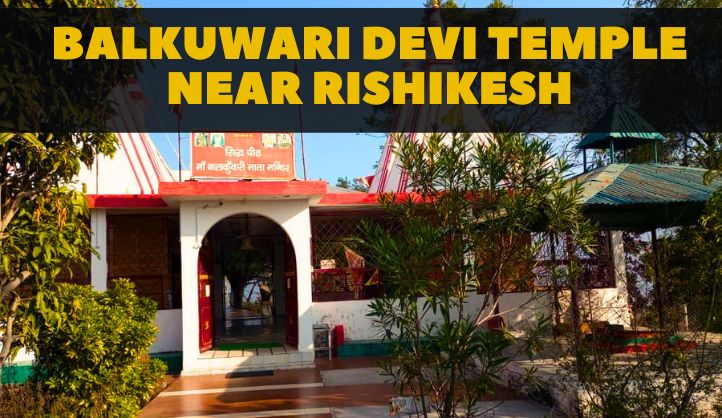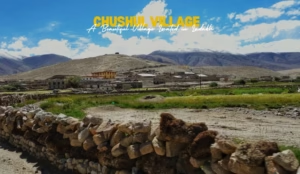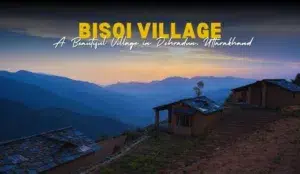Nestled amidst the majestic Himalayas, Uttarakhand unfolds like a sacred tapestry woven with spirituality and breathtaking natural beauty. From the revered Chardham pilgrimage to serene yoga retreats tucked away in tranquil valleys, the state offers a heaven for those seeking solace, connection with the divine, and a chance to reconnect with nature. Today, we embark on an in-depth exploration of a hidden gem – the Balkuwari Devi Temple, nestled near the renowned Neelkanth Mahadev Temple.
Mythology and Significance of Balkuwari Devi Temple
The Balkuwari Devi Temple, also spelled Balkunwari Temple, is dedicated to the embodiment of feminine power, Shakti, worshipped as Maa Balkuwari. Located approximately 25 kilometers from the bustling city of Rishikesh in the Pauri Garhwal district, the temple offers a unique experience for both spiritual seekers and nature enthusiasts.
Origin Stories and Local Beliefs
The origin of the Balkuwari Devi Temple is shrouded in the mystical charm of the Himalayas, with local legends adding to its allure. One popular belief narrates the tale of Goddess Parvati, the consort of Lord Shiva. According to this legend, Maa Parvati chose this serene location as her abode during her penance.
Another captivating legend associates the temple with the Pandavas, the righteous heroes of the epic Mahabharata. It is believed that the Pandavas sought refuge here during their exile. Regardless of the specific origin story, the temple holds immense spiritual significance for devotees across the region.
Maa Balkuwari: Embodiment of Strength, Prosperity, and Protection
Maa Balkuwari is revered as a manifestation of Shakti, the embodiment of divine feminine power. Devotees believe that seeking blessings at the Balkuwari Devi Temple brings peace, and prosperity, and fulfills cherished desires. She is also considered a protector, particularly for children. Many parents bring their children to the temple to seek Maa Balkuwari’s blessings for their health, well-being, and academic success.
Rituals and Offerings at the Temple
The sanctum sanctorum within the temple complex houses the revered idol of Maa Balkuwari. The tranquil atmosphere within the temple invites introspection and allows devotees to offer prayers in peace. The air resonates with the soft chanting of hymns and the gentle murmur of prayers, creating a profound sense of serenity.
Devotees often offer various items to Maa Balkuwari as tokens of their devotion. These offerings may include fresh flowers, symbolizing purity and renewal; sweets, representing gratitude and seeking blessings for a prosperous life; and coconuts, considered a symbol of strength and determination. Witnessing these traditional rituals allows for a deeper understanding of the cultural and spiritual significance of the temple.
Beyond the Temple Walls: Exploring the Environs and Local Culture
A visit to the Balkuwari Devi Temple extends far beyond the religious aspect. The surrounding area offers a plethora of activities for nature lovers and those seeking cultural immersion.
-
A Tapestry of Nature: Take a leisurely stroll through the serene meadows carpeting the foothills. Breathe in the fresh mountain air, invigorating your body and soul. During spring and summer, these meadows transform into a vibrant tapestry of wildflowers, adding a touch of color to the verdant landscape.
-
Hiking Trails for the Adventurous Soul: For those seeking a more challenging experience, explore the well-maintained trails that lead deeper into the Himalayas. These trails offer even more stunning vistas of the majestic peaks and valleys. As you traverse these paths, you might encounter the diverse flora and fauna of the region, including colorful birds, playful monkeys swinging through the trees, and even glimpses of elusive mountain animals.
-
A Glimpse into Local Life: The villages nestled around the Balkuwari Devi Temple offer a glimpse into the traditional way of life in the Garhwal region. Interact with the warm and welcoming locals, learn about their customs and traditions, and witness their deep-rooted faith reflected in their daily routines.
A Perfect Stopover for Neelkanth Mahadev Devotees
The proximity of the Balkuwari Devi Temple to the Neelkanth Mahadev Temple makes it an ideal stopover for pilgrims visiting the latter. Neelkanth Mahadev, literally translating to “blue-throated god,” represents Lord Shiva after he consumed the poison that emerged from the churning of the cosmic ocean. A visit to both temples allows you to experience the divine masculine and feminine energies revered in Hinduism. Juxtaposing the serenity of the Balkuwari Devi Temple with the grandeur of Neelkanth Mahadev provides a well-rounded spiritual experience.
Essential Tips for a Fulfilling Pilgrimage
Planning Your Visit:
The Balkuwari Devi Temple is open all year round, but the ideal time to visit depends on your preferences. The months between March and June offer pleasant weather for the climb, with clear skies and comfortable temperatures. However, if you enjoy cooler temperatures and witnessing the vibrant autumn foliage, consider visiting between September and November. During the winter months (December to February), the higher reaches can experience snowfall, making the climb more challenging.
What to Wear:
Pack comfortable clothing and shoes suitable for climbing. Opt for breathable fabrics like cotton or synthetic materials that wick away moisture. Since the weather in the mountains can be unpredictable, it’s advisable to carry layers. A light jacket or sweater will come in handy during the cooler mornings or evenings. Sturdy shoes with good grip are essential for navigating the uneven terrain.
Essentials to Carry:
Here’s a checklist of essentials to ensure a comfortable and enriching experience:
- A sturdy water bottle: Staying hydrated is crucial, especially during the climb.
- Sunscreen and a hat: Protect yourself from the sun’s harsh rays, especially during the midday hours.
- Sunglasses: Shield your eyes from the glare reflecting off the snow-capped peaks.
- Snacks: Pack some light snacks like energy bars or fruits to keep your energy levels up during the climb.
- A small backpack: This will help you carry your essentials comfortably.
- Cash: While there might be small shops selling basic supplies at the base village, carrying some cash is recommended.
Respecting the Local Culture:
Dress modestly and maintain silence within the temple premises. It’s also important to be respectful of the local customs and traditions.
Offering Donations:
There are designated collection boxes within the temple complex where you can make donations to help with the temple’s upkeep. This is entirely voluntary.
Photography Etiquette:
While capturing the beauty of the temple and the surrounding landscape is encouraged, be mindful of other devotees and avoid using flash photography within the temple sanctum.
Nearby Places to Explore
Here are some nearby places you can explore after visiting Balkuwari Devi Temple:
Neelkanth Mahadev Temple
Located around 8 kilometers from the Balkuwari Devi Temple, the Neelkanth Mahadev Temple is a renowned shrine dedicated to Lord Shiva. According to legend, Lord Shiva drank the poison that emerged from the churning of the cosmic ocean, and his throat turned blue (Neelkanth). This temple is a popular pilgrimage site and offers stunning views of the surrounding Himalayan valleys.
Rishikesh
A 25-kilometer journey from Balkuwari Devi Temple, Rishikesh, also known as the “Yoga Capital of the World,” is a must-visit for those seeking spiritual rejuvenation and adventure. Here, you can experience yoga retreats, and meditation sessions, attend Ganga Aarti at Triveni Ghat, or indulge in exciting activities like white water rafting and bungee jumping.
Rajaji National Park
Rajaji National Park is a sprawling national park, established in 1936, is a haven for wildlife enthusiasts. Home to endangered species like Asian elephants, tigers, leopards, and a variety of birds, the park offers jeep safaris, elephant rides, and trekking trails for nature lovers.
Haridwar
Located 40 kilometers away, Haridwar is one of the seven holiest cities in Hinduism. Here, you can experience the sacred Ganga Aarti ceremony at Har Ki Pauri, visit ancient temples like Mansa Devi Mandir and Chandi Devi Temple, or explore vibrant markets selling religious artifacts and souvenirs.
Camping in Shivpuri
If you’re seeking an adventure experience, head to Shivpuri, a popular camping destination situated on the banks of the Ganges River. Here, you can camp amidst nature, enjoy bonfire nights, participate in river rafting and kayaking, or simply relax by the riverside.
Conclusion
A visit to the Balkuwari Devi Temple is more than just a pilgrimage; it’s a journey that combines physical exertion with the serenity of nature and the power of faith. The climb offers a sense of accomplishment, while the panoramic views and tranquil atmosphere within the temple provide a sense of peace and rejuvenation.
Whether you’re a seasoned hiker seeking a spiritual adventure or a nature lover yearning for breathtaking vistas, the Balkuwari Devi Temple awaits you with its unique charm and spiritual significance. So, lace up your shoes, pack your essentials, and embark on a soul-stirring experience with this hidden gem in the heart of the Himalayas!
FAQs About Balkuwari Devi Temple
1. How do I reach Balkuwari Devi Temple?
Take a taxi or jeep from Rishikesh to Aamdi village, the trek’s starting point.
2. Is the trek difficult?
It’s moderately challenging with around 327 stairs. Wear good shoes and be moderately fit.
3. What should I bring?
Pack water, sunscreen, snacks, and a hat. Comfortable clothes and shoes are key!
4. Can I take pictures?
Yes, but be respectful and avoid flash photography inside the temple.
5. What’s near the temple?
Explore nearby meadows, and hiking trails, or visit the Neelkanth Mahadev Temple!





